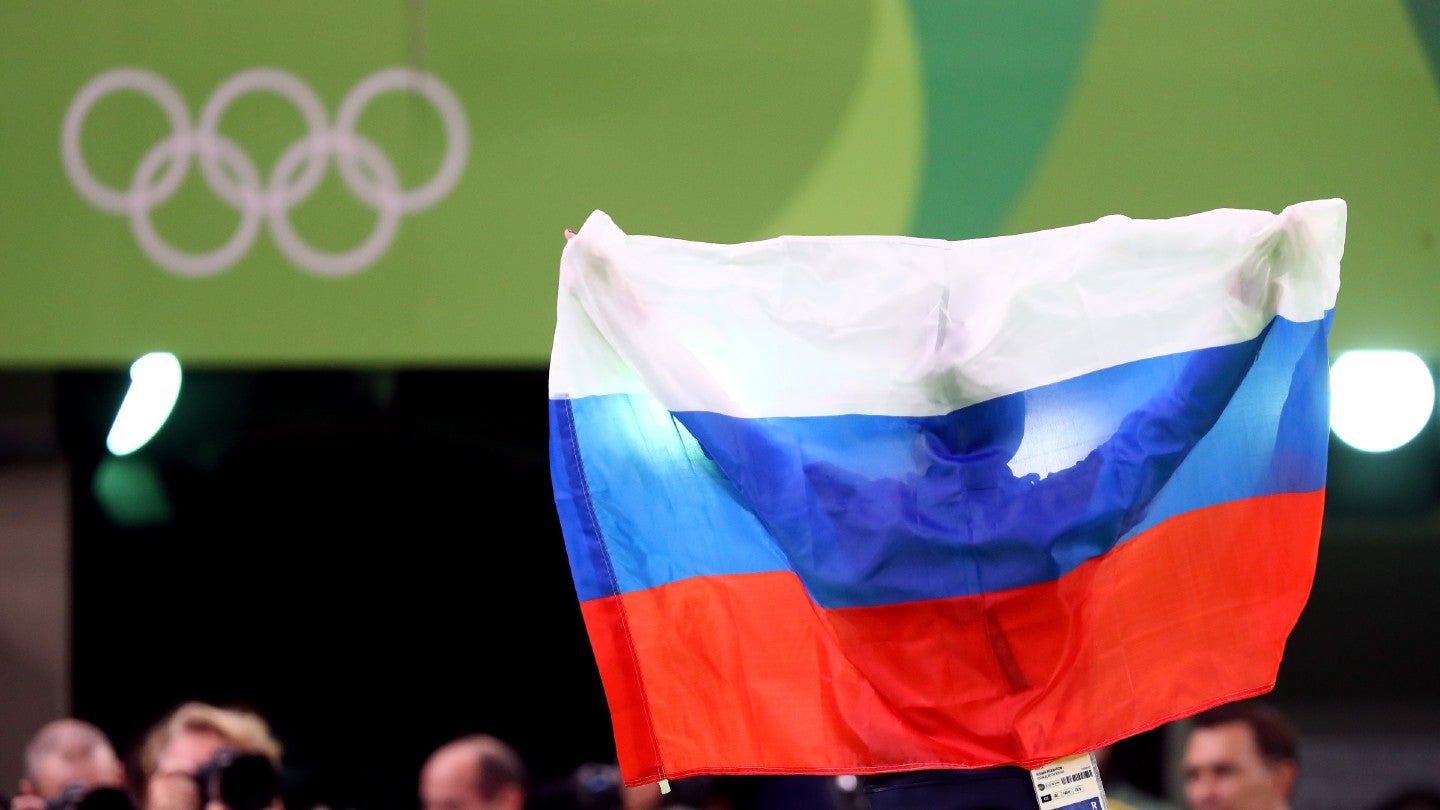
The International Olympic Committee (IOC) has insisted its sanctions against Russia and Belarus “are not negotiable” but has not closed the door on athletes from the two countries competing at the 2024 Olympics.
The IOC issued a statement on Tuesday (January 31) in response to comments made by Stanislav Pozdnyakov, head of Russia’s Olympic Committee (ROC), earlier in the day regarding the country’s possible participation in Paris next year.

Discover B2B Marketing That Performs
Combine business intelligence and editorial excellence to reach engaged professionals across 36 leading media platforms.
Pozdnyakov was addressing the IOC’s own announcement last week that athletes from Russia and Belarus, who are currently banned from competing in Europe, might be allowed to earn slots for Paris 2024 through Asian qualifying systems.
The IOC’s statement on Twitter read: “The sanctions against the Russian and Belarusian states and governments are not negotiable. They have been unanimously confirmed by the recent Olympic summit meeting on 9 December 2022.”
However, the IOC last week decided it will explore a potential ‘pathway’ for Russian and Belarusian athletes to participate in sporting competitions.
The Olympic Council of Asia (OCA) had offered Russian and Belarusian athletes the chance to compete in Asia and the matter was discussed at an executive board meeting.

US Tariffs are shifting - will you react or anticipate?
Don’t let policy changes catch you off guard. Stay proactive with real-time data and expert analysis.
By GlobalDataAt the 11th Olympic Summit in December, the IOC said it “welcomed and appreciated the offer from the OCA” and would explore the proposal to reintegrate Russian and Belarusian athletes into competitions ahead of Paris 2024.
The executive board primarily met to discuss the unanimous conclusions of the Olympic Summit. The board comprises the leaders of all the stakeholder groups of the Olympic Movement and the International Paralympic Committee (IPC).
Such a move to reintegrate Russian and Belarusian athletes would represent a slight softening of the IOC’s stance, with it having recommended that athletes and officials from the two countries be banned from participating in international sports events, competitions, and tournaments following Russia’s invasion of Ukraine, assisted by Belarus, last February.
The ultimate decisions taken at the board meeting were that “no athlete should be prevented from competing just because of their passport” and that “a pathway for athletes’ participation in competition under strict conditions should therefore be further explored.”
Those conditions would be that athletes participate as neutral and must have fully respected the Olympic Charter, including not having shown support for the war against Ukraine.
The IOC did, however, reaffirm other sanctions against Russia and Belarus, including bans on organizing or supporting events, the display of their flags, colors, or anthems, and the invitation or accreditation of their government or state officials to events or meetings.
Following his re-election as president of the ROC in December, Stanislav Pozdnyakov suggested the country will look for other options for its athletes to participate in competitions if the ban is upheld.
Meanwhile, the Association of Summer Olympic International Federations (ASOIF) has given its support to the IOC’s efforts to explore a way for Russians and Belarusians to compete as neutral athletes.
ASOIF, whose membership is made up of the sports who will be present at Paris 2024, on Monday (January 30) stated that it “supports the spirit” of the IOC’s proposal and the further exploration of the suggested concept linked to it.
The organization outlined the importance of respecting the specificity of each federation and its particular qualification process for the 2024 Olympics while highlighting the right of all athletes to be treated without any discrimination, adding that inclusion sends a “strong message of peace”.
ASOIF also reiterated the necessity to prevent interference in sports matters by public authorities.
The ASOIF said its council will discuss the “pressing and sensitive matter” during its official meeting on March 3.





